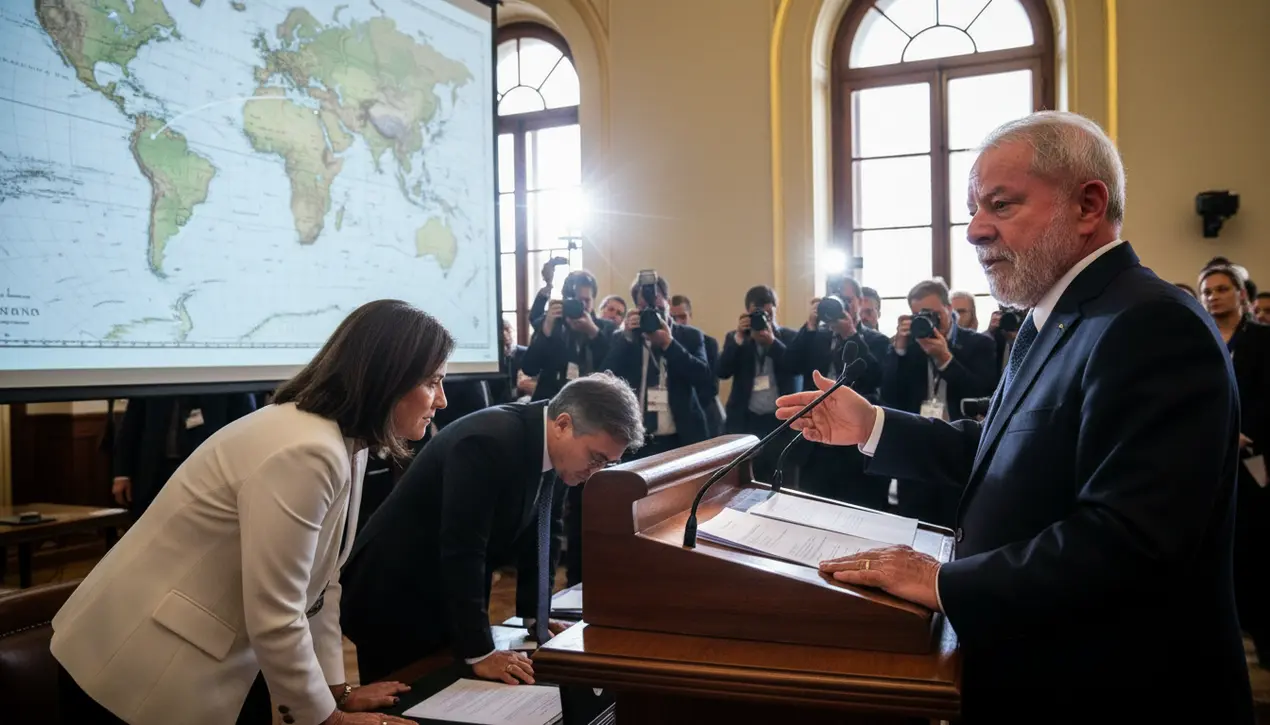
PoliticsdiplomacyTrade Agreements
Brazil's Lula announces December push for Mercosur-EU trade deal.
RO
Robert Hayes
9 hours ago7 min read2 comments
In a move that carries the weight of a quarter-century of diplomatic maneuvering, Brazilian President Luiz Inácio Lula da Silva has set a definitive course for the long-stalled economic agreement between the South American trade bloc Mercosur and the European Union, declaring an officialization date of December 20, 2025. This announcement, made on November 23, is not merely a scheduling note; it is a strategic gambit reminiscent of historic treaty negotiations, placing Brazil firmly in the driver's seat as it prepares to preside over the next critical Mercosur meeting.The path to this point has been a masterclass in geopolitical patience and economic ambition, a 25-year saga fraught with protectionist anxieties, environmental standards debates, and the complex interplay of national interests across two continents. The core of the contention has often mirrored the old-world versus new-world economic divide, with European nations, France in particular, demanding stringent environmental and labor safeguards that some Mercosur members view as veiled protectionism.France's persistent push for these 'safeguards' acts as a powerful counterweight to Lula's accelerated timeline, creating a tension that will define the coming year of talks. For Lula, this deal is a cornerstone of his broader vision to reassert Brazil's leadership on the global stage and revitalize its industrial base through enhanced access to the world's largest single market.The potential economic ramifications are staggering, promising to reshape supply chains, boost agricultural exports, and create a new transatlantic economic corridor. However, the shadow of past failures looms large; the deal has been on the brink of completion before, only to collapse at the final hour due to political shifts, most notably the environmental concerns that escalated under the previous Brazilian administration.Analysts are watching closely to see if Lula's government can successfully navigate the internal dissent within Mercosur itself, where countries like Paraguay and Uruguay have occasionally shown divergent trade priorities, while simultaneously appeasing the EU's powerful agricultural lobby and its green legislative agenda. The success or failure of this December push will be a definitive test of multilateralism in an increasingly fragmented global economy, a signal of whether major powers can still bridge ideological divides for mutual economic gain. The coming months will be a delicate dance of diplomacy, where every clause and concession will be scrutinized, determining whether this long-awaited partnership finally becomes a reality or joins the annals of near-miss trade agreements.
#featured
#Mercosur
#European Union
#trade deal
#Brazil
#France
#safeguards
#negotiations
Stay Informed. Act Smarter.
Get weekly highlights, major headlines, and expert insights — then put your knowledge to work in our live prediction markets.
Related News
Comments
Loading comments...
© 2025 Outpoll Service LTD. All rights reserved.